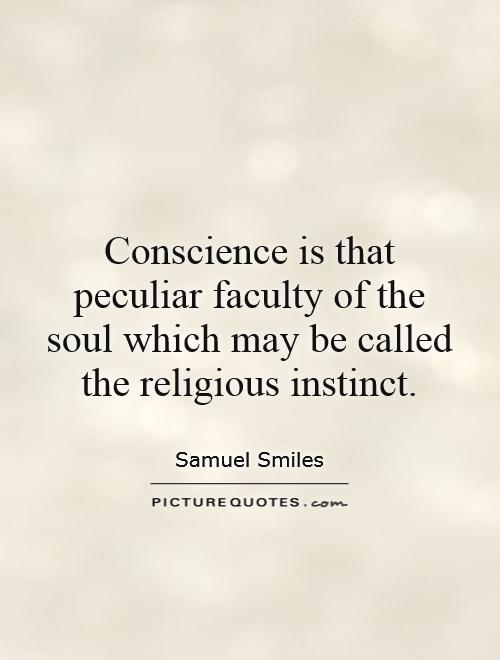Conscience is that peculiar faculty of the soul which may be called the religious instinct

Conscience is that peculiar faculty of the soul which may be called the religious instinct
Samuel Smiles, a Scottish author and reformer, was a firm believer in the power of conscience as a guiding force in one's life. He often spoke of conscience as a peculiar faculty of the soul, one that could be likened to a religious instinct. In Smiles' view, conscience was not just a moral compass, but a deeply ingrained sense of right and wrong that was rooted in one's spiritual beliefs.For Smiles, conscience was more than just a set of rules or principles to live by. It was a fundamental part of one's being, a voice within that urged individuals to act in accordance with their values and beliefs. In his writings, Smiles emphasized the importance of listening to one's conscience and following its guidance, even when faced with difficult decisions or temptations.
In his most famous work, "Self-Help," Smiles extolled the virtues of self-reliance, hard work, and moral integrity. He believed that by cultivating a strong conscience and living in accordance with its dictates, individuals could achieve success and happiness in life. Smiles saw conscience as a source of strength and resilience, a moral compass that could help individuals navigate the challenges and obstacles they faced.












 Friendship Quotes
Friendship Quotes Love Quotes
Love Quotes Life Quotes
Life Quotes Funny Quotes
Funny Quotes Motivational Quotes
Motivational Quotes Inspirational Quotes
Inspirational Quotes